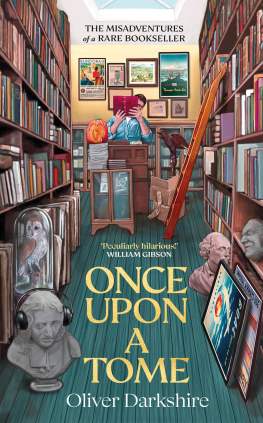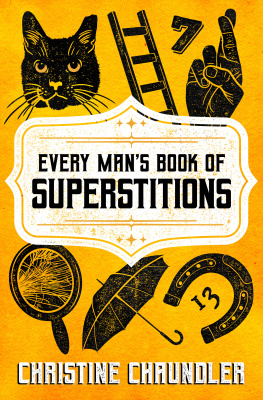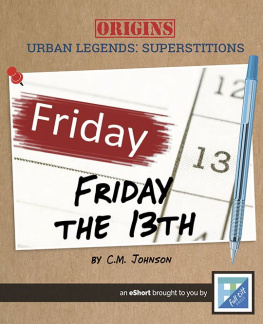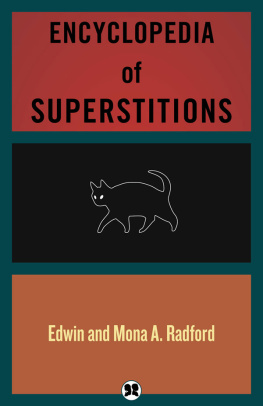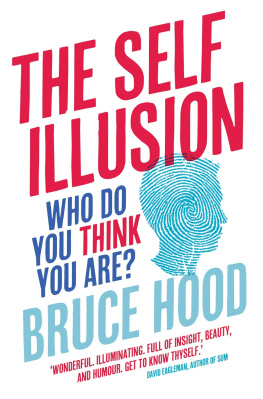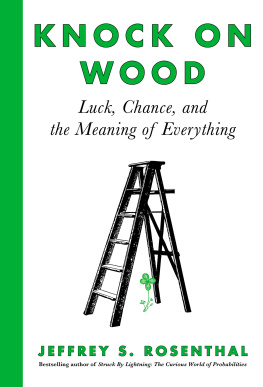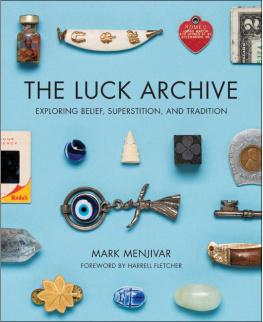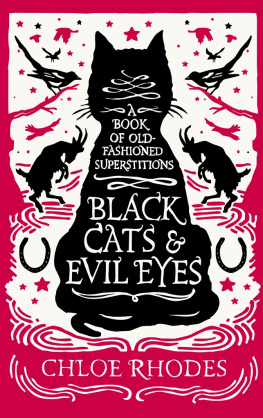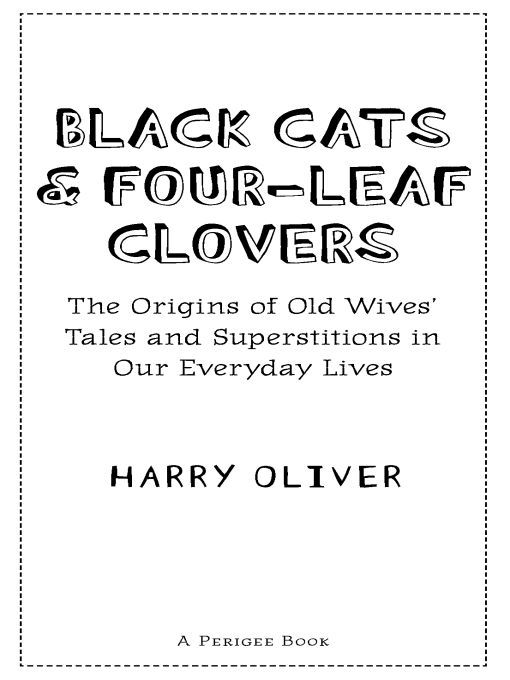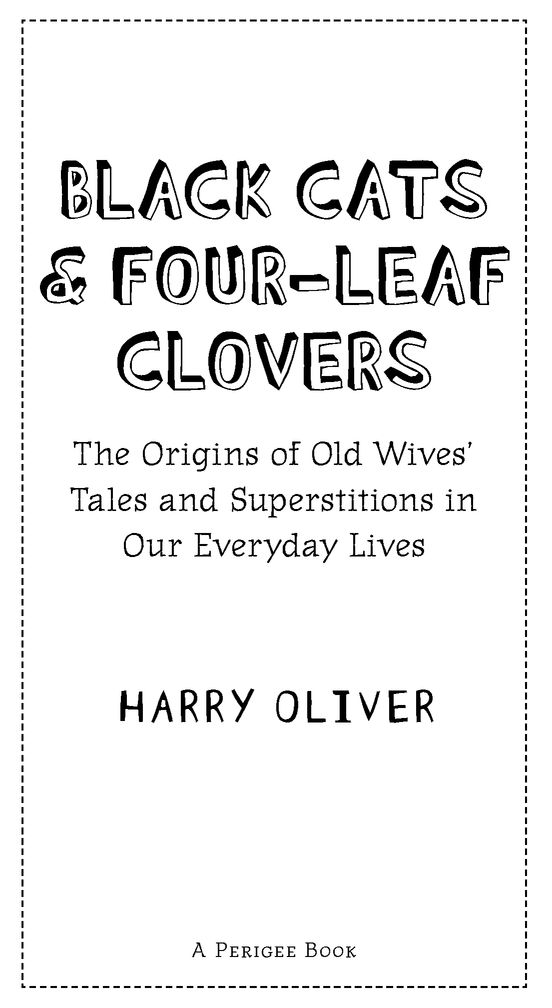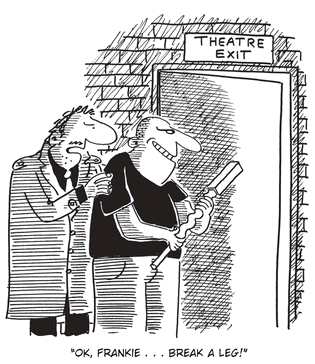Table of Contents
Also by Harry Oliver
BUBBLE GUM AND HULA HOOPS
For Mum, Dad and Claire
INTRODUCTION
When I think of old wives tales and superstitions I think of childhood, which is naturally when I first encountered them, usually as warnings from adults. Whether from parents, grandparents, other peoples parents, or even teachers, the authority of whomever told me that walking under a ladder was courting disaster, or that it was unlucky to tread on cracks in the pavement, or that if I broke a mirror it would bring seven years of misfortune, was enough to make me accept this unquestioningly. The need to challenge such truths was peculiarly absent in me: I did not doubt that eating carrots would improve my eyesight, even make me see in the darkI merely assumed that my lack of night vision was due to a deficiency in my consumption of the vegetable! And as for the things I was told would bring me luckcoins in a fountain, seeing a black cat, owning a horseshoe, or finding a four-leaf clover, for instancewell what child is going to doubt the logic of something that is going to improve their lot? Not me, anyway. But growing up and developing into a teenager with a defiant streak, combined with the boredom of teenage frustration, meant that the odd transgression such as purposely striding beneath a builders ladder just to see what would happen was irresistible.
And not much did happen, so far as I am aware. But how could I be aware that I didnt deprive myself of a bit of extra luck? The interesting thing is that all but the most coldly rational of us hold on to superstitions of one sort or another, be they obscure, idiosyncratic notions that many have not heard of, or more commonly accepted pieces of received wisdom that we put into practice without even thinking about it. After all, in a society where religion plays an increasingly small part in our lives, Bless you still crops up whenever a sneeze forces its way out of an individual.
The origins of old wives tales and supersitions are sometimes reasonably obvious, but all too often, they are not! Many are grounded in ancient beliefs, and of course in Christian dogma, but then again a good number have arisen in more recent times. In researching this book, I naturally aimed to provide explanations of the common beliefs we are all aware of, but also wanted to give ample space to the lesser-known, yet still fascinating, ones that may be long gone, or only known of in certain quarters. Many, whose origins remained obscure to me, are listed because they are interesting in themselves, and offer food for thought, and I would be most glad if anyone could fill in any gaps where my research proved fruitless.
I have tried to create a book for everyone to enjoy, for the superstitious and the cynic alike. After reading it, if you find yourself transformed into a paranoid recluse, wary of leaving the house for fear of the consequences of what may happen to you, then I am sorry. But, knock on wood, this wont happen, and you will enjoy reading as much as I enjoyed writing. Ill keep my fingers crossed that this is the outcome for most of you. Enjoy!
ARTS AND ENTERTAINMENT
Break a leg!
Break a leg!
It is considered unlucky to wish an actor good luck before a performance; instead, it is customary to tell him or her to break a leg. The origins and precise meaning of this expression are unclear, and over the years many different experts on superstitions have developed theories as to how it came about. One explanation suggests that, since leg is a euphemism for rope (as taboo in the theater as it is on board ships), to tell somebody to break a leg would be equivalent to telling him or her to break the rope holding up the curtain. A particularly good performance, then, would call for the curtain to be opened many times in a row for the actor to reemerge in front of the applauding audience, putting it at a risk of breaking.
Another explanation for the expression links it back to ancient Greece, where audiences stamped their feet instead of clapping their hands at the end of a good performance. To tell an actor to break a leg would thus not be referring to the actors leg but to that of his or her viewers who would have to stamp their feet so much while watching their performance. This explanation seems unconvincing, however, since the expression seems to exist only in English.
Eating and drinking food made with lemon or milk before a performance
To eat or drink food made with lemon or milk is considered very unlucky before a performance. The explanation for this superstition is quite simple: eating both substances affects saliva production, which hinders an actors voice and makes a performance weaker.
Macbeth is the unluckiest of plays
Shakespeares tragedy Macbeth is considered the unluckiest of all plays to put on stage, forecasting disaster for the company performing it and bringing misfortune to those performing in it. The records show that it is the play during which the largest number of accidents, fires and deaths have occurred, and many famous actors who performed the play are said to have had terrible misadventures following its staging. It is considered very unlucky to say the word Macbeth anywhere in the theater, but especially in the dressing rooms. The play is supposed to be referred to instead as that Scottish play, and there are various rituals that actors have to abide by if they accidentally say the M word. According to one tradition, whoever says the forbidden word in the dressing room is to leave the dressing room, turn in a circle three times, break wind or spit, and then only come back after knocking and asking permission to reenter. Another commonly cited remedy is to say, Angels and ministers of grace defend us! a line spoken in act 1, scene 4 of Hamlet right after the appearance of the Ghost.
The play is generally considered to be unlucky on account of the appearances of the witches and the occult content of many of the scenes. At the time when Macbeth was first being performed, belief in witchcraft was still widespread and actors may have been afraid of accidentally unleashing demonic forces or conjuring up evil spiritswhich is why the line from Hamlet would be spoken in protection against any such visitation. Some sources point to a more practical origin for the superstition, however. In Victorian times, theater managers would close unsuccessful plays and replace them with Macbeth, as it was usually a great success due to its violent and bloody scenes and the fact that it could be learned faster than other Shakespeare pieces since it is his shortest tragedy. To hear the word Macbeth spoken in the dressing room would thus be an omen of very bad luck for actors who risked finding themselves out of work very soon. It is also possible that the bad statistics for the performance of the play may be explained precisely because it was used so often as a replacement and filler in theater seasons.
Whistling during a performance brings bad luck
It is considered very unlucky to whistle anywhere near the stage during a performance as this is supposed to curse it and bring doom upon it. One simple explanation for this is that theater technicians would sometimes be given the signal to raise a prop or send down a backdrop using some form of whistling code. Whistling backstage could inadvertently send the wrong signal and seriously ruin a play.


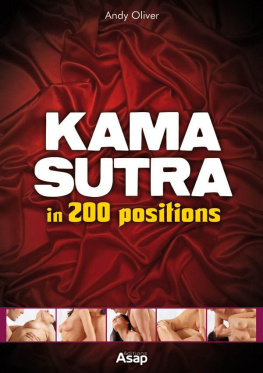
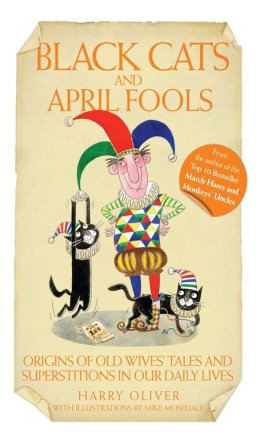


![Oliver - Around the World with One Direction - The True Stories as told by the Fans]](/uploads/posts/book/100930/thumbs/oliver-around-the-world-with-one-direction-the.jpg)

